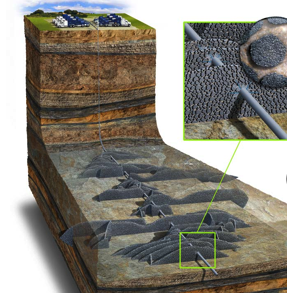Ethical Oil, the Sub-Prime Mortgage Scandal and The Next Great Generation
 We are living in difficult times. The ongoing economic crisis started by the 2008 Sub-Prime Mortgage Scandal has all of us thinking about our future. We are vulnerable to unethical appeals to our anxiety in the form of quick fixes and easy profits. The promise of "Ethical Oil" is the worst of these appeals. We have to resist. Even more, we have to take decisive actions that the current leadership will not. To quote a famous man, we have an ordeal before us of the most grievous kind and we need a new generation of leadership to tackle it. We need the next Great Generation.
We are living in difficult times. The ongoing economic crisis started by the 2008 Sub-Prime Mortgage Scandal has all of us thinking about our future. We are vulnerable to unethical appeals to our anxiety in the form of quick fixes and easy profits. The promise of "Ethical Oil" is the worst of these appeals. We have to resist. Even more, we have to take decisive actions that the current leadership will not. To quote a famous man, we have an ordeal before us of the most grievous kind and we need a new generation of leadership to tackle it. We need the next Great Generation.
In 2008, world financial markets collapsed in dramatic fashion due to unethical investment practices, particularly in the previous five years. Toxic subprime mortgages had been injected like a virus into securities like Collateralized Debt Obligations (CDOs). Investment banks around the world were in on this scam and kept pushing it far beyond the point where it was obvious something had to give. Last year, the U.S. Financial Crisis Inquiry Commission concluded:
"the crisis was avoidable and was caused by: Widespread failures in financial regulation, including the Federal Reserve’s failure to stem the tide of toxic mortgages; Dramatic breakdowns in corporate governance including too many financial firms acting recklessly and taking on too much risk; An explosive mix of excessive borrowing and risk by households and Wall Street that put the financial system on a collision course with crisis; Key policy makers ill prepared for the crisis, lacking a full understanding of the financial system they oversaw; and systemic breaches in accountability and ethics at all levels.“
Read more: Ethical Oil, the Sub-Prime Mortgage Scandal and The Next Great Generation



































